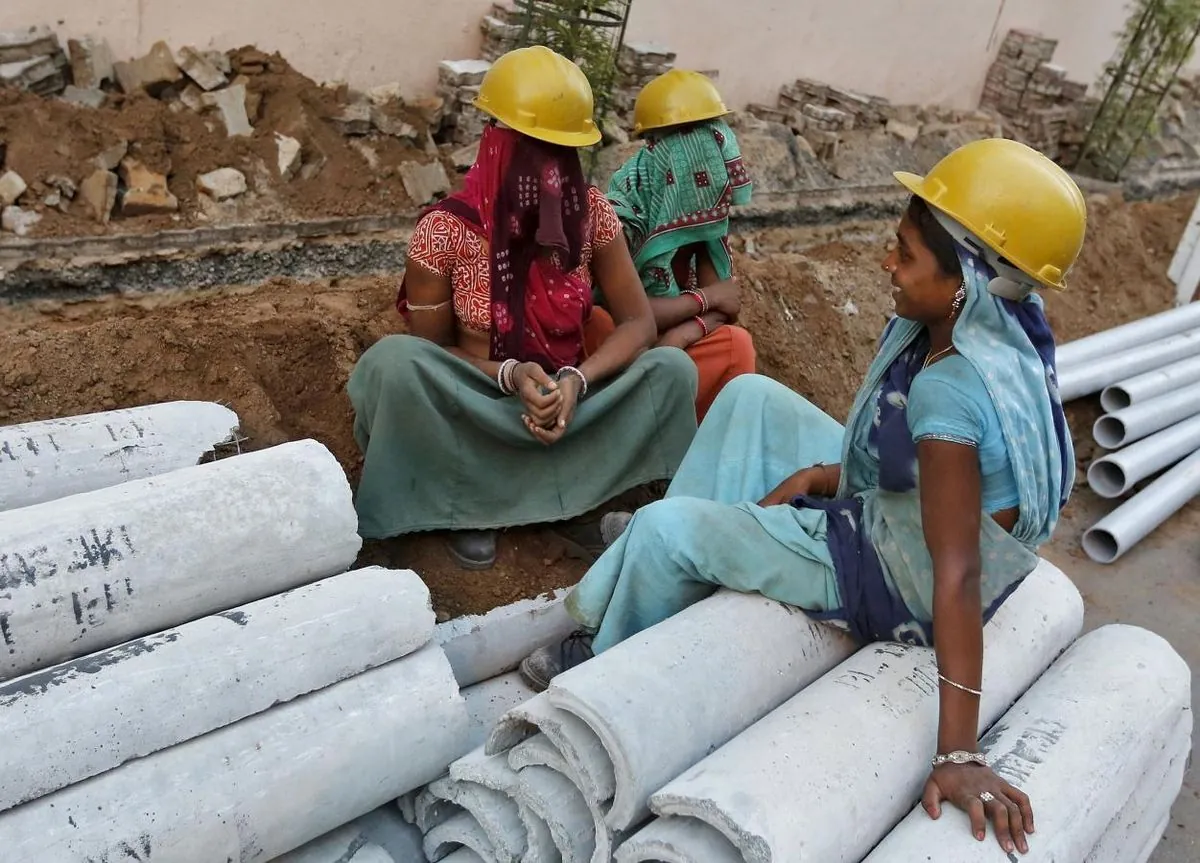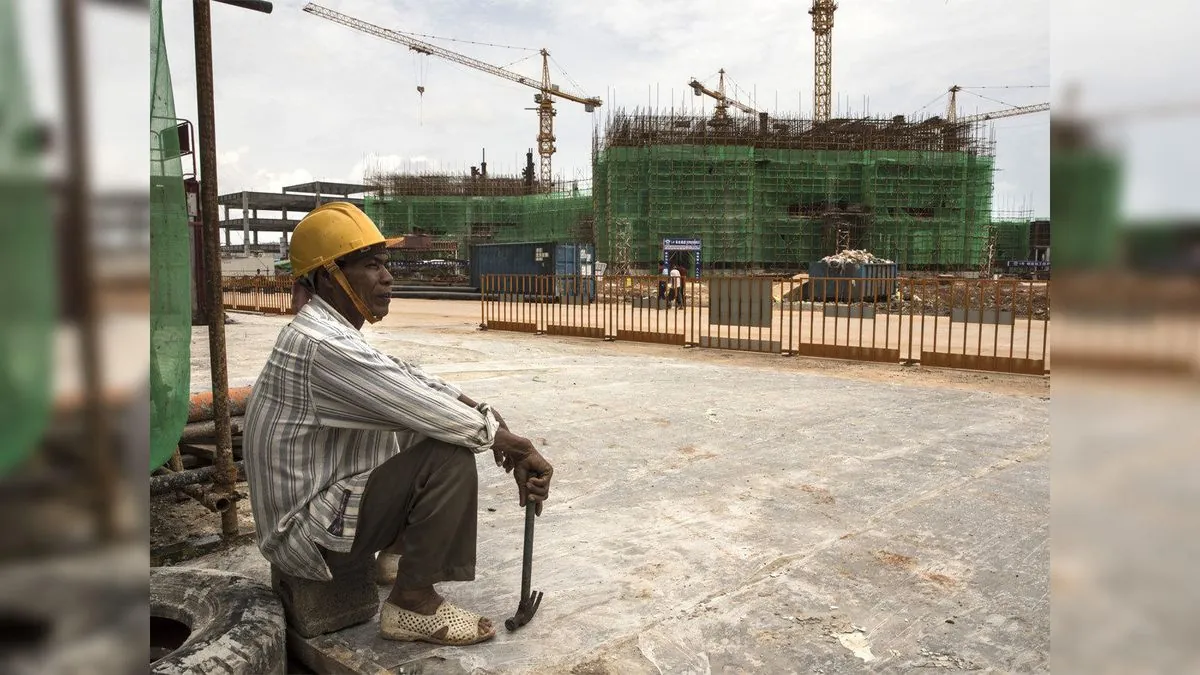India Boosts Minimum Wages for Informal Sector Workers Amid Rising Costs
India announces a slight increase in minimum wages for informal sector workers, effective October 1, 2024. The adjustment aims to help workers cope with rising living costs, following recent nationwide protests.

In a move to address the rising cost of living, India has announced a marginal increase in minimum wages for workers in the informal sector, including construction, mining, and agriculture. This adjustment, set to take effect on October 1, 2024, comes as a response to the 2.40-point rise in the Consumer Price Index (CPI) for industrial workers.
The informal sector, which accounts for over 80% of India's workforce, plays a crucial role in the country's economy. This sector includes a diverse range of occupations, from construction workers to agricultural laborers, many of whom lack job security and social protection.
Under the new wage structure, unskilled workers in the highest band will receive a daily minimum wage of 783 rupees ($9.36), while semi-skilled and highly skilled workers will earn 868 rupees and 1,035 rupees, respectively. These rates reflect the government's effort to balance worker needs with economic considerations.

India's labor landscape is complex, with over 200 state and 50 central government laws regulating various aspects of employment. The Minimum Wages Act of 1948 provides the framework for these wage regulations, which are revised twice annually based on inflation trends.
The recent wage adjustment comes in the wake of widespread worker protests across India. Earlier this week, thousands of workers demonstrated, demanding higher wages and the repeal of four labor codes they believe favor multinational corporations over local workers.
"This adjustment is aimed at helping workers cope with the rising cost of living."
It's worth noting that India's labor force, the world's second-largest after China, faces significant challenges. The country's labor force participation rate remains one of the lowest among emerging economies, and labor productivity, while improving, lags behind many other developing nations.
The government's decision to increase minimum wages aligns with broader efforts to improve working conditions and support the workforce. Initiatives like the National Rural Employment Guarantee Act (NREGA), which provides 100 days of wage employment to rural households, and the "Make in India" campaign, aimed at boosting manufacturing and creating formal sector jobs, are part of these efforts.
The International Labour Organization (ILO) has been collaborating with India to enhance working conditions and promote decent work. This partnership is particularly crucial given the rapid growth of the gig economy in India, which is adding to the informal sector workforce.
As India continues to navigate the challenges of economic growth and worker welfare, the impact of the COVID-19 pandemic on informal sector workers remains a significant concern. The recent wage adjustment is a step towards addressing these issues, but many argue that more comprehensive reforms are needed to ensure fair labor practices and improved living standards for all workers in the world's largest democracy.


































